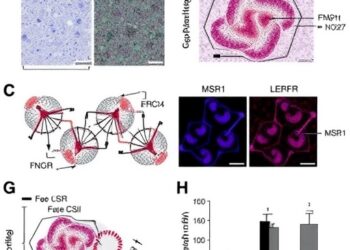Microbial communities are constantly exposed to the invasion of exogenous species, which can significantly alter their composition and function. The capacity of a microbial community to resist invasion is regarded as an emergent property resulting from the complex interactions among its constituent species.
The ability to predict and modify colonization outcomes (i.e., prevent the engraftment of pathogens and promote the engraftment of probiotics) is crucial for personalized microbiota-based interventions in nutrition and medicine. Despite accumulating empirical studies, predicting colonization outcomes in complex communities remains a fundamental challenge due to limited knowledge of interspecies interactions.
Recently, a research team led by Prof. DAI Lei from the Shenzhen Institute of Advanced Technology (SIAT) of the Chinese Academy of Sciences, in collaboration with other researchers, developed a data-driven approach that is independent of any dynamic models to predict the colonization outcomes of exogenous species in complex microbial communities without detailed knowledge of the underlying ecological and biochemical processes.
The study was published in Nature Communications on March 16.
In this study, the researchers systematically evaluated the proposed data-driven approach using synthetic data generated from classical ecological dynamical models and in vitro human stool-derived microbial communities. They found that, with a sufficient sample size in the training data (on the order of ~O(N)), colonization outcomes (i.e., whether an exogenous species can establish and what its abundance would be if it does establish) can be predicted using machine learning models.
The researchers then generated large-scale datasets with in vitro experimental outcomes of two representative species colonizing human stool-derived microbial communities. They validated that machine learning models could also predict colonization outcomes in experiments (AUROC > 0.8).
Furthermore, the researchers used machine learning models to identify species with significant colonization impacts and empirically demonstrated that the introduction of highly interacting species can substantially modify colonization outcomes.
“Our results show that the colonization outcomes of complex microbial communities can be predicted via data-driven approaches and are tunable,” said Prof. DAI.
“Data-driven methodologies are powerful tools for biologists. Combined with advancements in predicting the characteristics of complex biomolecules, I anticipate that this approach will precipitate a paradigm shift in studying the stability and function of intricate ecological systems and facilitate significant applications in healthcare and agriculture,” DAI added.




